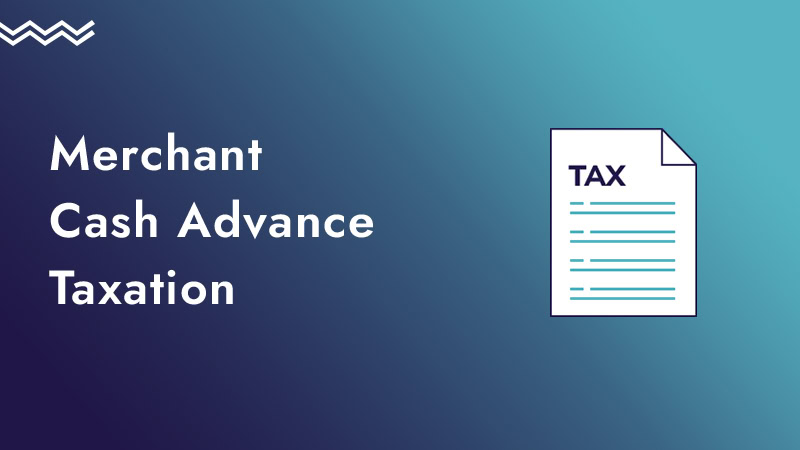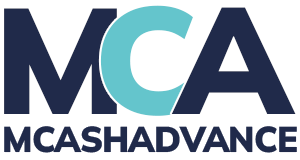
Business owners often ask us if a merchant cash advance is tax-deductible. We spend a lot of time explaining which MCA-related costs can be written off and which ones can’t, especially when it comes to factor rate fees, origination charges, and how repayments are recorded for tax purposes.
So we wrote this article to answer those questions clearly and give you a solid reference you can come back to whenever you need to explain it to your bookkeeper, accountant, or tax preparer.
Let’s break it down step by step.
How MCA Funds Are Classified for Tax Purposes
A merchant cash advance (MCA) is not considered a loan by the IRS. It’s a purchase of future receivables. That means the MCA provider gives you a lump sum in exchange for a portion of your future sales.
Since the MCA is not a loan, the funds you receive are not considered taxable income when you get them. You’re not borrowing money, you’re selling expected revenue at a discount. That’s why MCA funding is not taxed on receipt.
You will still pay normal taxes on the business revenue you generate, including the sales that go toward repaying the MCA. But the advance itself is not taxed as income.
Can You Deduct MCA Fees on Your Taxes?
Unlike loans, MCAs don’t charge interest. Instead, they use a one-time factor rate. For example, if you receive $20,000 at a factor rate of 1.15, you’ll repay $23,000. That $3,000 is a fixed fee, not interest.
Here’s the key point: the IRS does not allow factor rate fees to be deducted like interest. So you cannot write off the $3,000 as a finance cost.
What Might Be Deductible
Other fees tied to your MCA may qualify as business expenses:
- Origination fees
- Processing or ACH fees
- Legal fees related to securing the MCA
- NSF fees
- Admin or closing costs
If these were necessary to access the funding, they may be deductible under standard expense rules. But keep detailed records, and let your tax preparer review them.
Example Deduction Table
| Expense Type | Amount | Deductible? |
|---|---|---|
| Cash Advance Amount | $20,000 | No |
| Factor Rate Fee (1.15) | $3,000 | No |
| Origination Fee | $250 | Yes |
| Closing Fee | $100 | Yes |
| ACH Fee | $60 | Yes |
| NSF Fee | $70 | Yes |
How Accounting Method Affects MCA Tax Treatment
The way you recognize MCA-related costs depends on your accounting method.
- Cash basis: You record expenses when you pay them.
- Accrual basis: You record expenses when they are incurred.
In either case, the cash advance and the factor fee are not deductible. But any additional costs, like processing or legal fees, may be deducted depending on when they were incurred and paid.
How to Record an MCA in Your Bookkeeping
Proper bookkeeping makes tax reporting easier and reduces the chance of errors.
Here’s how to track an MCA in your books:
- Record the advance as a liability, not income.
- Track repayments as they reduce that liability.
- Separate fees like origination or ACH charges and log them as business expenses.
- Reconcile repayments with your bank and processor statements.
- Keep a copy of the original MCA agreement and repayment schedule.
Creating separate categories in your chart of accounts (e.g., “MCA Repayments” and “MCA Fees”) can help you stay organized and simplify year-end tax prep.
IRS Forms and MCA Reporting
MCAs are not reported on a Form 1099-MISC or Form 1099-INT because they’re not considered income or interest.
However, you may receive a Form 1099-K from your credit card processor if you process payments through a merchant account. That form will show your gross receipts, which include the sales used to repay the MCA.
This doesn’t mean you’re taxed twice. But you’ll want to reconcile your revenue and deductions accurately so you don’t underreport or overreport income.
State tax rules usually follow federal treatment, but some states may have differences in expense classification. Check with a local tax pro if you file in more than one state.
What Records Should You Keep?
We strongly recommend keeping the following:
- Your signed MCA agreement and funding offer
- The initial funding confirmation and deposit record
- Bank and processor statements showing repayments
- Receipts for any related fees
- Emails or documents showing changes to the terms
Good documentation helps your tax preparer and protects you if you’re audited.
Common Tax Mistakes to Avoid with MCAs
Here are the mistakes we see most often:
- Reporting the MCA advance as taxable income
- Deducting the full repayment amount
- Treating the factor rate as interest
- Not separating fees from principal
- Forgetting to reconcile processor reports like 1099-K
These mistakes can lead to inaccurate tax filings or trigger IRS questions down the road.
Final Tips
MCA taxation is manageable if you understand how it works:
- Don’t report the advance as income
- Don’t deduct the full repayment
- Do track related business fees
- Do consult a tax preparer
- Do keep clear records
Want to see how to log an MCA in your books? Read our full walkthrough:
Recording MCAs on Financial Statements: 5 Key Steps
Ready to Apply?
or learn more about merchant cash advance loans

